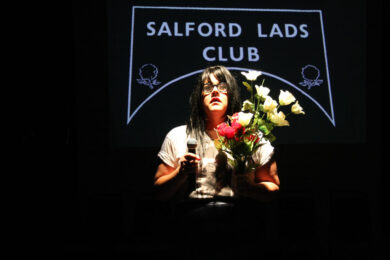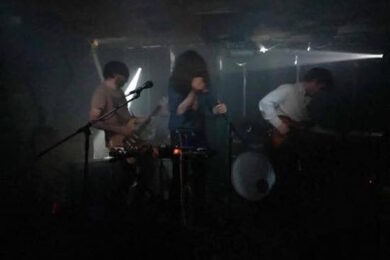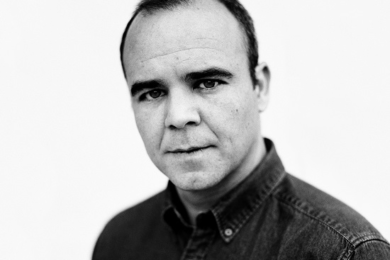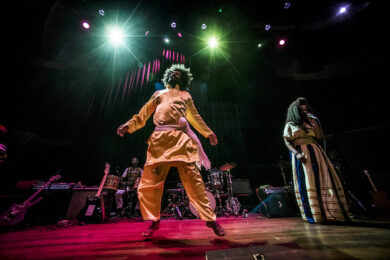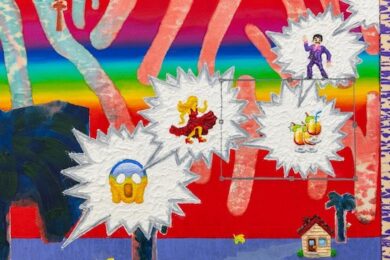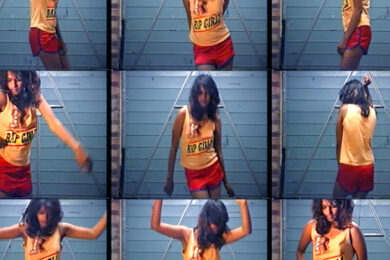This documentary feature film sees Vice magazine take another step towards throwing off the perceived image of it as the American Sugar Ape, a magazine that is full of masturbation tips for wheelchair bound black lesbian cage fighters and the like. But this film, their first effort, shows a different side to the anti-establishment group, being thoughtful and even sensitive about a subject that they obviously care about. And what the pair of directors/presenters Eddy Moretti and Suroosh Alvi lack in technical skills they make up for in enthusiasm and guile. As they declare during the opening shot of them strapping on flak jackets while surrounded by tooled up body guards standing round nervously framed by a painfully blue sky: "It’s dangerous for us to be here . . . but heavy metal rules."
The film follows the ‘fortunes’ of Baghdad based death metal group Acrassicauda ("It is Latin for the black scorpion") from the fall of Saddam Hussein in 2003 to last year. So anyone who has seen Spinal Tap will already be aware of the everyday pitfalls of being in a band such as not having access to the right sized bread for optimum sandwich making to not having the correctly proportioned Stone Henge props; but it is all credit to Acrassicauda that they maintain their sense of humour in the face of mortar fire, flak and suicide bombs. Despite what you would expect, they explain how they were able to play under Sadam’s regime; they had to prove they were loyal otherwise they could have been arrested and killed. (Cue grainy footage of them singing an early Metallica style song called ‘The Youth Of Iraq’ with the lyrics: "Following the leader, Sadam Hussein! We’re going to drive them fucking insane!" Singer Firas shrugs with embarrassment: "It’s just rubbish really!")
The team behind the film helped the band to set up a gig in the Al Fanar Hotel during the height of the insurgency and even the fact that a car bomb went off right outside the venue and the electricity wasn’t working properly, didn’t stop the gig going ahead to a room full of metal crazed young Iraqi men in Machine Head T-shirts. While watching the look of sublime bliss on the faces of the few present as they all pile on top of each other during the gig (which is on at 5pm because of the curfew) you realise that they are experiencing the same ecstasy of abandonment that people dancing to the Lambeth Walk while taking shelter in a tube station in London during a WWII blitz felt.
For those fortunate enough to survive the war and the insurgency, those moments will surely be remembered as some of the happiest in their lives. And so these are the best bits of the film. Firas literally laughs when he talks about the car bomb saying: "We are used to the impact; we see it on TV and we see it in the streets. Dead bodies all the time. We are used to it."
This is when the documentary takes a particularly bittersweet, if not outright sour, turn. The fortunes of the band and their friends make for a particularly useful metaphor for their entire generation. 80% of Iraqi musicians had fled the country by 2006 and most musical events had been banned. As most people reading this could probably have predicted, things for the locals had gotten much worse because of our intervention. The band were forced to flee to Damascus ("where there is no metal scene"), forced into a Spartan apartment, forbade to do anything other than menial labour and eventually to sell their instruments to make ends meet. The film ends with the band angry, dejected and defeated, with the clear message that war keeps on claiming casualties long after it ends.






